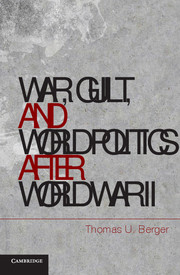3 - Austria
The Prodigal Penitent
Published online by Cambridge University Press: 05 August 2012
Summary
It has been said that Austria's greatest accomplishment in the twentieth century was to convince the world that Beethoven was Austrian and Hitler was German, when in fact, the reverse is true. Behind this joke is a cruel criticism of Austria's ability to forget: to forget the fact that like the Federal Republic, the Republic of Austria was a successor state to the Third Reich; to forget the role many individual Austrians played in the worst crimes of the Nazi era; to forget the wild scenes of jubilation that greeted Hitler during his triumphal tour of Austria following the Anschluß; and to forget the shameful way in which many Austrians participated in, and often profited from, the destruction of Austria's Jewish community.
For decades, Austria was able to hide from both itself and from the world this darker side of its history thanks to the convenient myth, first propagated by the Allied Powers in 1943, that Austria had been the “first victim of Nazism.” The myth of Austrian victimhood became the basis of a resolutely impenitent official historical narrative, one that denied any Austrian responsibility for the crimes of the Third Reich, neglected the legal pursuit of the perpetrators of atrocities, and paid relatively paltry sums of compensation to the victims of Nazism and their families.
- Type
- Chapter
- Information
- War, Guilt, and World Politics after World War II , pp. 83 - 122Publisher: Cambridge University PressPrint publication year: 2012



